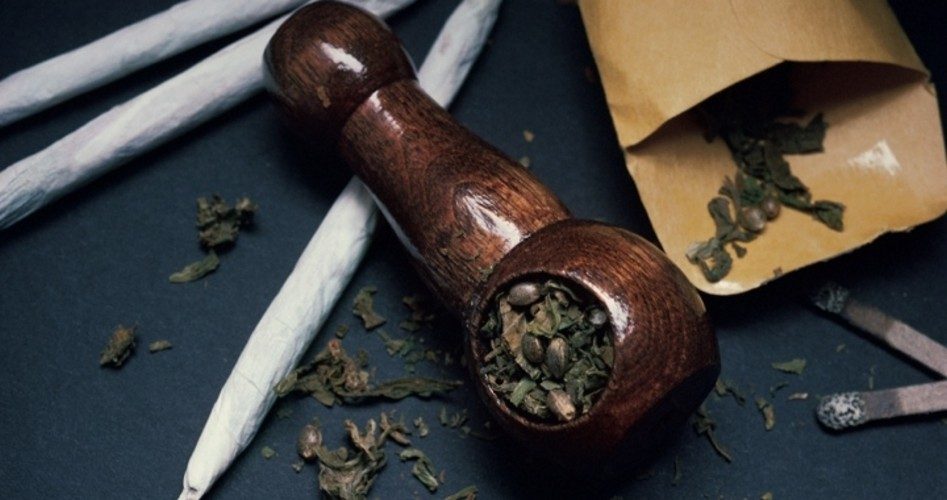
With two U.S. states having already nullified United Nations agreements and federal statutes purporting to prohibit drugs across the globe, the Obama administration and other governments — some of which already bucked the UN drug war as well — have been quietly prodding the UN to relax its “interpretations” of the increasingly controversial global drug-prohibition regime. However, while the planetary “war on drugs” may be slowly crumbling, the globalist forces behind it are busy laying the foundations of new UN-led machinations under the guise of dealing with narcotics, crime, health, and more.
In a press conference earlier this month, Obama’s Assistant Secretary at the State Department “Bureau of International Narcotics and Law Enforcement Affairs” William Brownfield raised eyebrows. Citing the recent decisions by voters in Colorado and Washington State to end marijuana prohibition, he called on the UN to offer “flexibility” in how it interprets the planetary agreements underpinning its global prohibition regime. While stopping short of calling for real changes to the UN “treaties” themselves, Brownfield emphasized that the world was changing and that “interpretations” of those UN schemes should change, too.
“The first of them was drafted and enacted in 1961,” he explained during a press conference in New York. “Things have changed since 1961. We must have enough flexibility to allow us to incorporate those changes into our policies.” After declaring that the world’s governments must “respect the integrity” of UN “Drug Control Conventions” adopted starting more than five decades ago, Brownfield also said that “flexible interpretations” of those conventions should also be accepted.
Late last year, when the government of Uruguay decided to nullify the UN prohibition regime on marijuana, the global outfit and its armies of bureaucrats almost had a meltdown, hysterically claiming that the people of the South American nation were not allowed to stop prohibiting the plant because of “international law.” “It is unfortunate that, at a time when the world is engaged in an ongoing discussion on the world drug problem, Uruguay has acted ahead of the special session of the U.N. General Assembly planned for 2016,” complained UN Office on Drugs and Crime (UNODC) boss Yuri Fedotov, a diplomat for the former mass-murdering Soviet regime. Some global drug warriors even called for “enforcement” actions.
In 2012, meanwhile, the UN’s drug czar — expressing transparent hostility to the U.S. constitutional system of federalism and self-government — demanded that the Obama administration override the U.S. Constitution and state sovereignty to prevent the people of Colorado and Washington State from ending pot prohibition. “These developments are in violation of the international drug control treaties, and pose a great threat to public health and the well-being of society far beyond those states,” claimed UN “International Narcotics Control Board” (INCB) boss Raymond Yans. Dozens of other American states have ended the ban on the plant for medical purposes, also in defiance of the UN’s global prohibition regime.
With those developments as a backdrop, Brownfield said it was time to “tolerate different national drug policies” and “accept the fact that some countries will have very strict approaches” while others will “legalize entire categories” of drugs purportedly banned by the UN. “How could I, a representative of the government of the United States of America, be intolerant of a government that permits any experimentation with legalization of marijuana if two of the 50 states of the United States of America have chosen to walk down that road?” he asked.
Despite calls for flexibility, though, Brownfield made it clear that the Obama administration remains a fervent believer in having the dictator-dominated UN call the shots on drugs and other issues. “All these countries must work together in the international community,” he argued, with “international community” meaning the collection of governments, dictators, and mass-murderers that make up the UN. “We all agree to combat and resist the criminal organizations — not those who buy, consume, but those who market and traffic the product for economic gain. Respect the conventions; flexible interpretation; tolerance for national polices; criminal organizations — that is our mantra.”
Before the press conference, Brownfield, Obama’s point-man for UN drug and “law enforcement” issues, spoke directly to the Third Committee of the despot-packed UN General Assembly. There, he emphasized yet again that, despite calls for “flexibility” in “interpreting” the UN regime, the Obama administration fully supports the UN’s drug machinations. “Our starting point is the international legal framework: the three drug control conventions, the UN Convention against Transnational Organized Crime, and the UN Convention against Corruption,” he said. “These treaties provide a resilient framework for establishing common definitions of illicit behavior; ensuring compatibility of legal standards and criminal justice responses; and promoting stronger cross-border cooperation.”
“As threats and our responses evolve, the international community should show tolerance as governments try new policies within their borders to address specific national concerns, provided they promote the aims of the conventions,” he continued. “Drugs, crime and corruption are global issues that require global responses. The international frameworks are an essential element. They are force multipliers, forging operational cooperation and helping us learn from each other. Only though collective effort can we advance our goal of making our citizens and communities safe.”
Prior to speaking to the UN, Brownfield was working with Latin American governments and dictatorships — many of which are demanding changes to the global prohibition regime — on a resolution to “update” what he described as “our Hemispheric Drug Strategy and Plan of Action.” Among other elements, the Obama administration’s international drugs bureaucrat told the Organization of American States (OAS) and its member regimes across the Americas that the measure “clearly articulates our region’s priorities to the broader international community as we prepare for the UN Special Session on Narcotics (UNGASS) in 2016.” It was not immediately clear why the “region,” currently led by a Socialist Party operative from Chile, needed “priorities” to present to the UN.
“It shows our commitment to consider the full human impact of drug policy on society: social cohesion, public health, and citizen security,” said Brownfield at the September OAS meeting in Guatemala, reiterating the increasingly in-vogue view that drug abuse is a “public health” problem rather than an issue for the “criminal justice” system. “Substance use disorders, like other diseases, can be treated. A science-based public health system is the bedrock for sound drug policy. We welcome the resolution’s call for member states to strengthen health and social services.”
Of course, U.S. government and UN claims notwithstanding, Washington, D.C., has no constitutional authority to prohibit substances. That is why alcohol prohibition, for example, required a constitutional amendment. Even UN “agreements” and “treaties” do not confer any power on the federal government to wage unconstitutional wars on substances and citizens. The Founding Fathers recognized that. And more recently, the Supreme Court also made that clear in Reid v. Covert, where it ruled that the feds could not expand their powers beyond constitutional limits simply by signing a treaty. Constitutionally speaking, decisions about how to deal with drug problems are a matter for the people of every state to decide through their elected representatives in the state legislature — not for Obama or the UN.
While the UN-mandated global “drug war” continues to slowly crumble, globalists do not intend to weaken the UN or their budding “global governance” regime that is increasingly taking aim at the United States. Rather, as numerous analysts have highlighted, they are planning to expand the usurped powers of international bureaucracies — perhaps under the guise of treating drug issues as a global “public health” concern.
Instead of submitting to UN schemes and begging for “flexibility” in interpretations of the global prohibition regime, Americans should demand a full withdrawal from the outfit and all of its tentacles. The widely ridiculed “dictators’ club” has no business setting policy for the American people on drugs or anything else.
Alex Newman, a foreign correspondent for The New American, is currently based in Europe. Follow him on Twitter @ALEXNEWMAN_JOU. He can be reached at [email protected].
Related articles:
End “Failed” UN Drug War, Urges Panel of Global Experts
UN Claims Uruguay Not Allowed to End Marijuana Prohibition
UN Demands Obama Smash State Marijuana Legalization
On Pot Nullification, AG Holder Admits Limits to Federal Power
U.S. Government and Top Mexican Drug Cartel Exposed as Partners
As UN Orders Expanded Global Drug War, Critics Fight Back
After Admitting Failure, UN Targets U.S. and Demands Expanded Drug War
Two States Defy Feds With Full Marijuana Legalization
The United Nations: On the Brink of Becoming a World Government
Latin America Debates Drug Legalization; Obama Demands More War on Drugs




